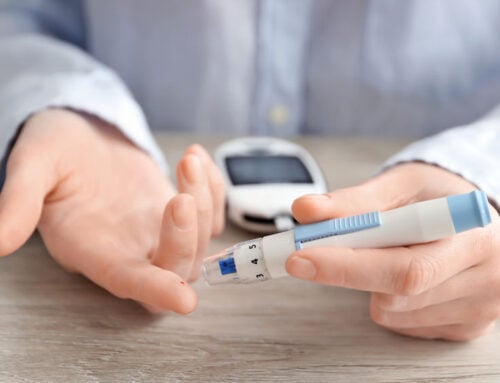Menopause and Diabetes: A Dual Challenge
Menopause is the stage of life when a woman’s periods have stopped for at least twelve months, and estrogen levels begin to decline. For most women, menopause begins around age 50. For some, menopause can occur as a result of surgery to remove the ovaries for another medical reason. Menopause has a number of effects on diabetes.

Soaring blood sugar
The female hormones estrogen and progesterone influence the body’s cell’s response to insulin. After menopause, changes in the hormone levels can lead to fluctuations in the blood glucose level. Women may notice the blood glucose levels are more variable than before. Blood glucose levels may also be more difficult to predict, which could mean a higher risk of diabetes complications.
Putting on the pounds
Some women gain weight during and after menopause. A few extra pounds can increase the need for oral diabetes medication or insulin. Women with diabetes often have difficulty losing weight because insulin levels are high and insulin is a fat-storing hormone.
Fighting infections
Even prior to menopause, high blood glucose levels can lead to vaginal and urinary tract infections. During and after menopause, when estrogen levels drop, yeast and bacteria can thrive in the vagina and urinary tract. So, the risk of infection increases.
Struggling with insomnia
During menopause, hot flashes and night sweats are common. Both can result in a disturbed sleep pattern. Additionally, insomnia can make managing blood glucose levels more difficult.
Menopause and diabetes: what to do
Although menopause can make diabetes control more of a challenge, there are ways to make living with both easier. The first step is to make healthy lifestyle choices such as eating balanced meals and exercising on a regular basis. This can also help women get through menopause. Keep a close watch on blood glucose levels during the day and occasionally during the night. Keeping a record of blood glucose readings will help structure a successful diabetes treatment plan. Menopausal symptoms with diabetes can be a challenge and physicians often consider hormone replacement therapy to alleviate discomfort.




